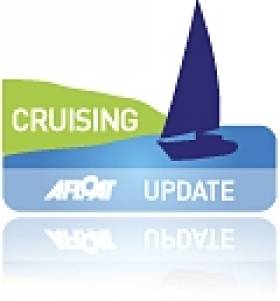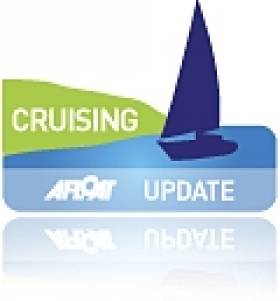Displaying items by tag: Baltic
Sailing Cruise Through the Baltic in Summer 2014
#baltic – Cruising rally specialists World Cruising Club (WCC), have announced an exciting new addition to their rally programme, with the first ever ARC Baltic Rally planned for summer 2014. Billed as "six capitals in six weeks" the new rally will offer a different focus from the trans-ocean events, for which WCC is best known. A combination of days cruising at sea, combined with an exploration of the region's fascinating culture and history, will take cruisers on a 1,500nm voyage of discovery through Europe's "east sea".
Andrew Bishop from World Cruising Club commented on the new rally. "We've often had requests from previous ARC participants for a Baltic cruise. Now, having proved with the popular Malts Cruise in Scotland, that the rally format of easy cruising, cultural and social activities, together with a lead-boat works well, I felt the time was right to go further east. The Baltic is a vast waterway which offers some superb sailing, and the added attraction of a unique and varied history, makes it a perfect place to cruise." Discussing the organization of the route, he continued "By having a lead-boat with an experienced Baltic sailor aboard, we can provide guidance and assistance all the way along the route, right into St. Petersburg!".
Starting from the Baltic port of Kiel, the home of German sailing, the ARC Baltic itinerary will include the Estonian capital Tallin, the former Russian Imperial capital St. Petersburg, the Finnish capital Helsinki, the Finnish provincial capital Mariehamn, the Swedish capital Stockholm, and the Danish capital Copenhagen. En route, the rally sails through some of the most beautiful and interesting sights in the Baltic. The rally format will be adapted to the Baltic and the individual legs will be short, one to two days, with the focus being to experience the cultural history of the region and enjoy the stunning beauty of the Swedish and Finnish archipelagos. Over six weeks the rally will sail close to 1500 nautical miles, with an itinerary that allows flexibility for the prevailing weather encountered. The start is planned to be in mid-July to be finished by late August, allowing yachts from further afield to be back to their home ports by the end of the month. World Cruising Club will lead the rally from onboard a yacht sailing with the fleet, with an experienced Baltic sailor and historian as guide.
At this stage World Cruising Club is taking expressions of interest for the first rally to be run in the summer of 2014.
Cruising Association's MedNet Goes Global
The Cruising Association has just launched a new internet and email based net, which lets members cruising various regions of the world arrange meets, ask questions and receive answers about ever-changing local facilities and regulations.
It all started in 2000 as Mednet, a service for some 85 members cruising yachts and motorboats in the Mediterranean. MedNet 1 allowed one-to-one email communication but soon members wanted more, especially the ability to see the answers to other members' questions.
So MedNet 2 was born in Spring 2001, providing wider access to conversations. By Autumn 2003 MedNet 2 had moved to Yahoo Groups, but as membership increased mail traffic became too heavy for slow and expensive internet connections on boats. As a consequence MedNetLite was introduced for those with low bandwidth connections. By now 250 users were exchanging news about lay-up sites, marinas, restaurants, anchorages, provisioning, boatyards, itineraries and regulatory changes. But a good long-term record of all this data was missing.
So MedNet 3 was introduced in 2006, working as an email based forum within MyCA, the Cruising Association members-only intranet. There were still shortcomings. The system was passive, collecting e-mails and displaying them online. Inputs were only by email. By now, users had grown to 350, 10% of the Cruising Association's membership. Members cruising in other regions began asking for their own networks.
The time had come to upgrade so Version 4 was developed by a group of Cruising Association members with IT skills. This has just been launched for four regions; Mediterranean, Baltic, European Inland Waterways and 'Blue Water'. Members can join as many as they wish. They post and respond online, or by email. They can receive full or lite email messages or opt for no email, just tuning in online when they have Internet access. A full record of all these discussions is maintained online, making it easy to research topics and keep the Cruising Association's many members-only publications right up-to-date.
On MedNet recent discussions have included:
• The need for grey water holding tanks in Turkey
• The cheapest way of making cash withdrawals
• Marina costs in western Italy
• Recommendations for a rigger in Preveza
• How to watch British TV in the Med
• Places for winter storage ashore
It will be interesting to see the sorts of topics that the wider use of MedNet technology brings!






























































